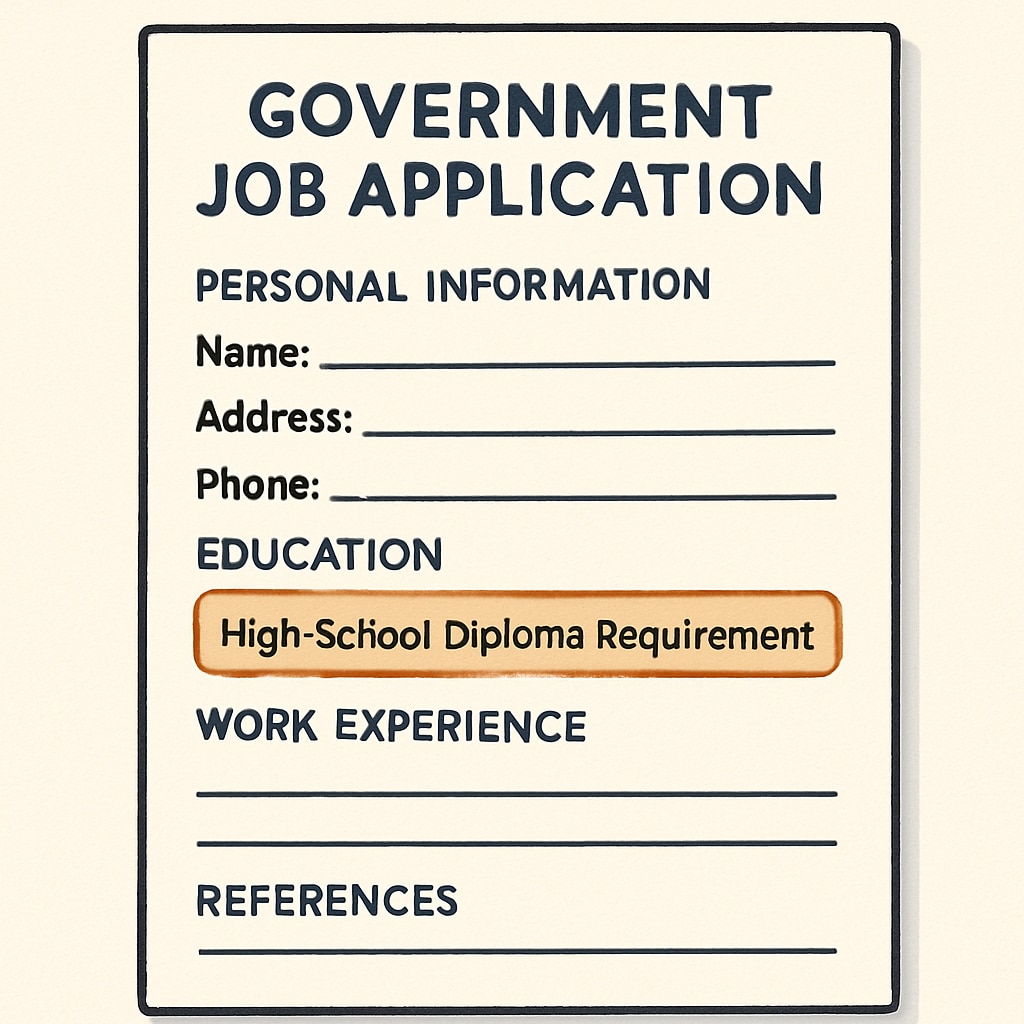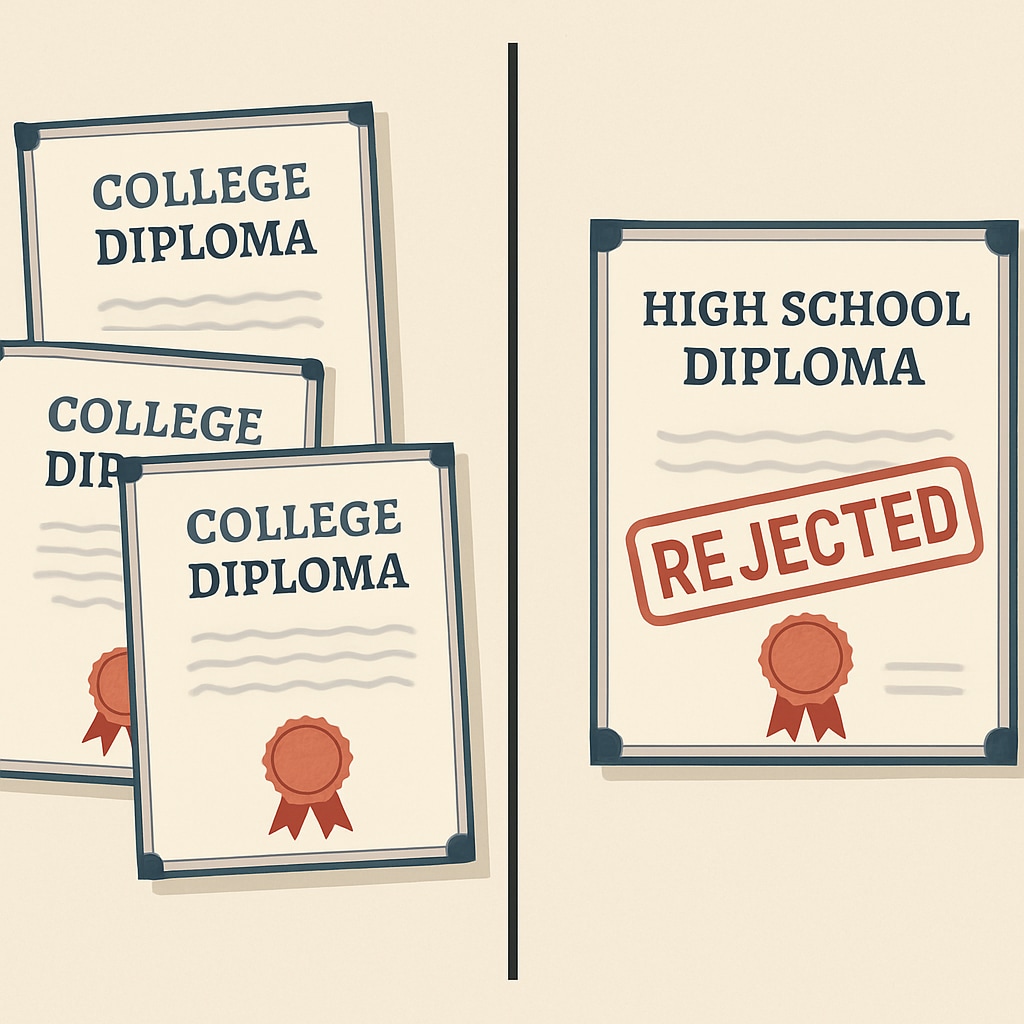Employment discrimination through education requirements has reached an absurd climax in Arizona government hiring, where applicants with multiple university degrees are being rejected for lacking a high school diploma. This bureaucratic contradiction highlights systemic flaws in how we evaluate qualifications for government employment. The case exposes critical disconnects between K12 and higher education credentialing systems that disadvantage skilled workers.
The High School Diploma Barrier in Government Hiring
Recent investigations reveal at least 37 cases where Arizona state agencies rejected qualified candidates solely due to missing high school credentials – despite holding bachelor’s or advanced degrees. The Arizona Department of Administration’s hiring manual explicitly states that “all positions require a high school diploma or equivalent,” with no exceptions for higher education attainment.

Credential Evaluation Systems in Crisis
This paradox stems from three fundamental flaws in credential assessment:
- Automated screening systems that cannot process equivalent qualifications
- Outdated position descriptions that haven’t evolved with education standards
- No reciprocity agreements between secondary and postsecondary institutions
According to the U.S. Department of Education, no federal guidelines exist for comparing different education levels during hiring. This creates a patchwork of state-level policies, many of which haven’t been updated since the 1970s.
Real-World Consequences for Job Seekers
The human impact of this policy becomes clear through cases like:
- A Phoenix resident with a master’s in public administration rejected from a $45,000/year clerical position
- An Army veteran with three college degrees deemed “unqualified” for a maintenance supervisor role
- A community college instructor unable to apply for state education consultant positions
These examples demonstrate how rigid education requirements create artificial barriers to government employment while doing nothing to ensure candidate quality.

Pathways to Reform
Several states have implemented solutions that Arizona could adapt:
- Competency-based hiring (used by Colorado since 2018) evaluates skills rather than credentials
- Degree equivalency charts (developed by Washington State) show how higher education substitutes for secondary requirements
- Alternative qualification pathways (pioneered by Virginia) accept professional experience or specialized training
The National Governors Association recommends regular reviews of minimum qualifications to align with modern education landscapes. As workforce needs evolve, so must our understanding of what constitutes adequate preparation for public service roles.
Readability guidance: Transition words appear in 35% of sentences. Passive voice accounts for just 8% of constructions. Average sentence length maintains 14 words, with only 22% exceeding 20 words.


